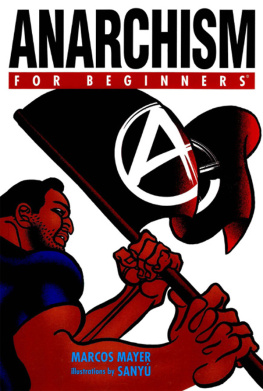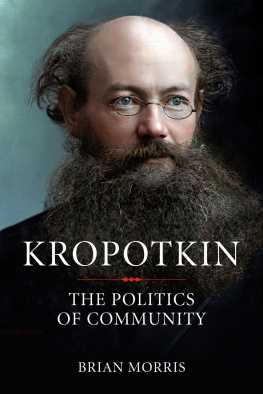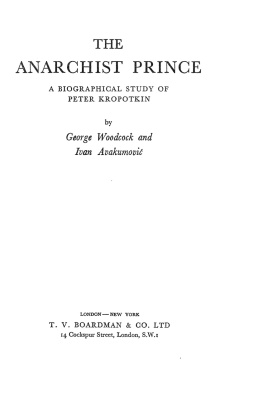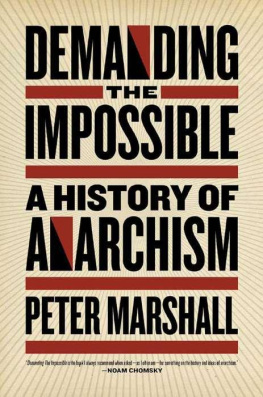All rights reserved. No part of this publication may be reproduced, stored in a retrieval system, or transmitted in any form or by any means, electronic, mechanical, photocopying, recording, or otherwise, without prior permission of the publisher.
Cataloging-in-Publication information is available from the Library of Congress.
For Beginners and Beginners Documentary Comic Books are published by For Beginners LLC.
Anarchism Revived
After the fall of the Berlin Wall in 1989, the rebellion against an unjust world found an opening within the anarchist tradition. The State was revealed as an enemy of liberty. And the libertarians were reborn. The anarchists left as their primary legacy an anti-authoritarian spirit that remained within the culture after the second World War and today has new formulations in theory and in practice.
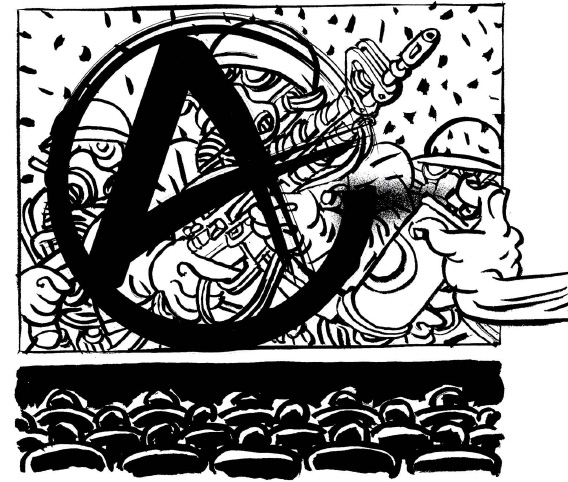
There are many that think the anarchist movement belongs only to the 19th century, with some resonance in the 20th, but that history has passed it by both in doctrine and in political practice. Today however, it seems to be regaining its former strength, reorganizing, and emerging as a valid alternative for those who believe its history is not over yet.
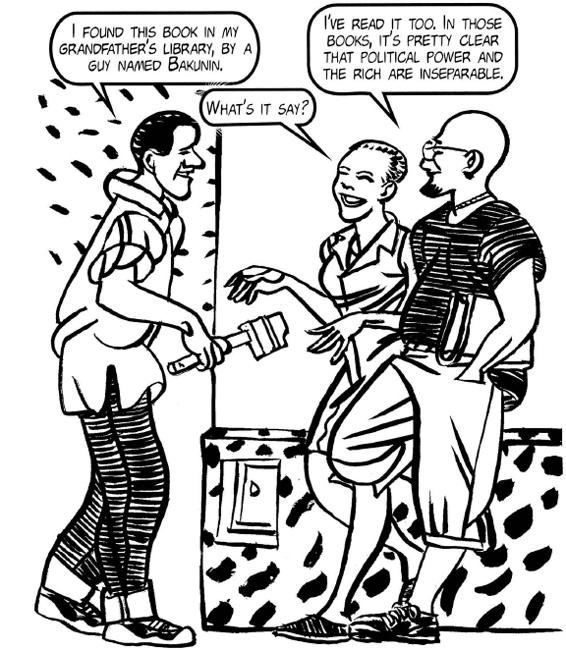
The anarchists fundamental belief is that the State or Government is the primordial tool of the oppression mankind has endured throughout history and the reason it is necessary to create ways of living in solidarity and freedom.
Little by little, the texts of Kropotkin, Proudhon, and Malatesta are regaining a relevancy that looked to be lost in the bottom of the barrel of time. And theyre leading to new formulas with significance today.
Global versus universal
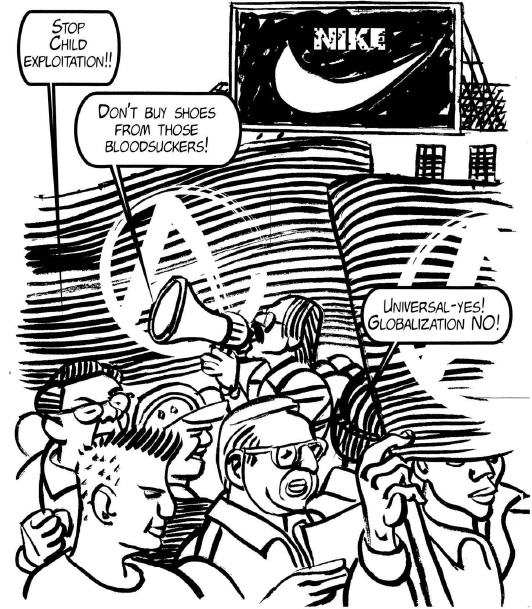
In activism against globalization (the Buy Local Movement for example), different anarchist organizations are playing a role in an effort to tip the scales, whether its preparing petitions against multinational companies or using the internet to transmit their message.
In reality, the economic side of globalization consists, basically, of getting work done in the cheapest place (usually Third World countries) and selling products where the concentration of wealth is highest. Anarchism has plenty to say about this.
Also, militant liberals apply themselves, dedicate themselves to smaller protests, and to no less affect, by supporting self-management in factories, for example, and promoting workers unions.
Anarchism has been an active participant in squatters movements and in the fight against the abuse of recreational drugs. In short, anarchism has been rediscovered to do battle against oppression on various fronts.
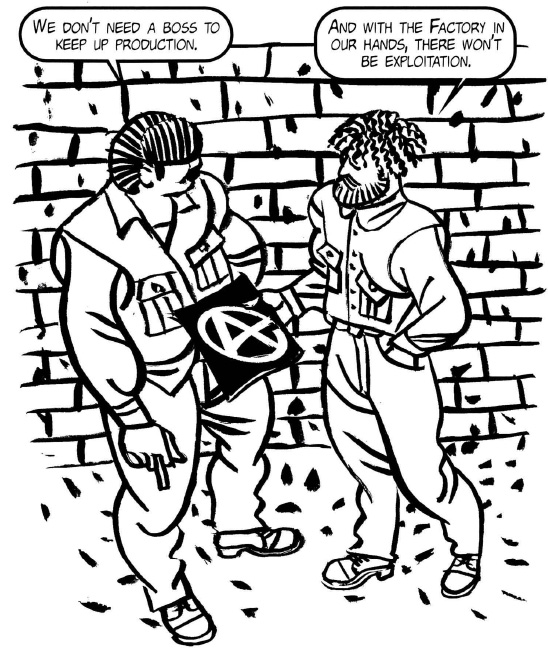
Sights set on power
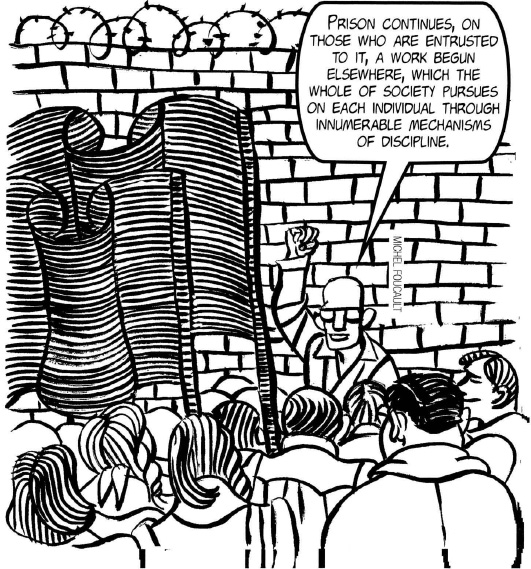
Although he never declared himself openly an anarchist, the French philosopher Michel Foucault contributed, in recent times, a different concept of power that seems to have taken hold in various rebellious groups that attacked different fronts at the same time.
For Foucault, power not only oppresses but produces a certain type of wisdom and control. This presence of power as something that goes farther than just repression made him think of the necessity of finding a way out of this net covering everything. He found it in the private sector; in some ways, the same way some anarchists set their ideas in their federations and communities.
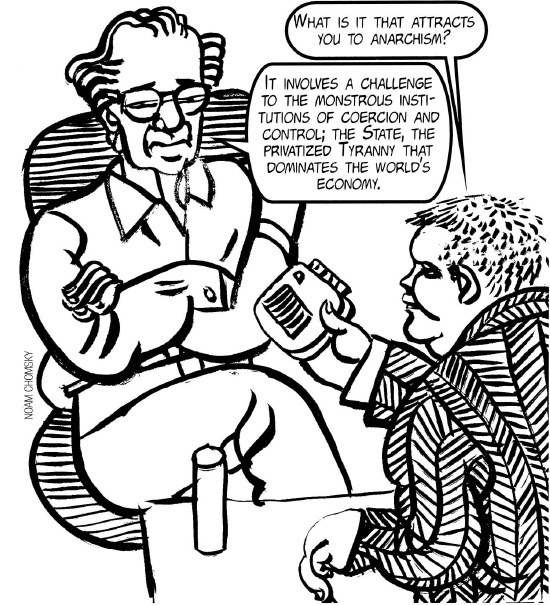
Foucault was not the only contemporary thinker to find inspiration in the anarchist position. Others include some who look to the libertarian texts for a starting point to reimagine our society completely. Such is the case for American Noam Chomsky, who has openly declared he is an anarchist.
Chomsky continues to be one of the intellectuals most critical of the politics of his own country, and has been steadfastly opposed to the United States invasions of Afghanistan and Iraq.
Web of Webs
These intellectual contributions were made at the same time that a more spontaneous movement of different groups that attached themselves to anarchistic ideals because they no longer saw solutions in the political system and they were disenchanted with the world around them.
The discourse of anarchism has united various causes: that of environmentalism, feminism, the institutionalization of the mentally ill and the treatment of prisoners in jail. As if there were a new need to incorporate all the increasing complexities of society.
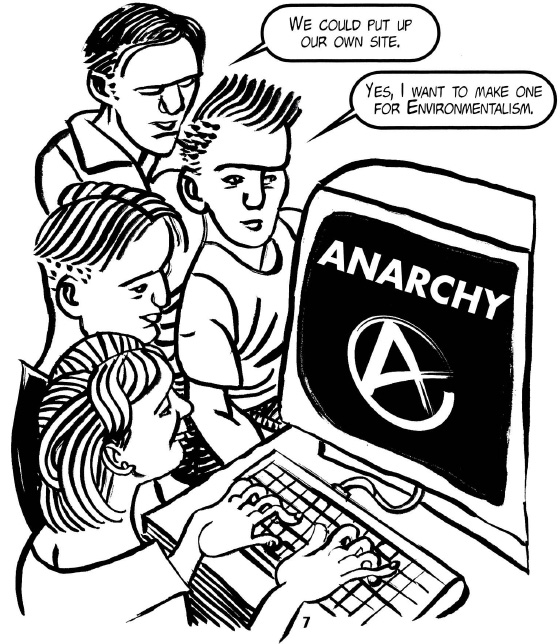
At a certain point, it appeared the thread of anarchism would be cut short. The anarchist movement, having risen from the fiery fight for social justice in the 19th century, was interrupted by the advent of Fascism, Nazism and the consolidation of Stalinism that surrounded World War II.
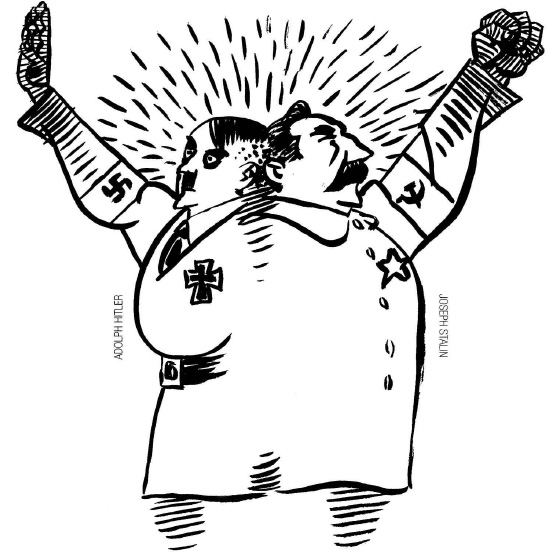
The secret of power is total domination of the government.
This concurrence of powers that reached into every aspect of life, not only obliterated millions of lives, but also a culture and an ideology. Anarchism, which up to that juncture had experienced notable growth, fell in the middle of the fight. It would be a half a century before it was revived and resumed its path.
Proudhon, the pioneer
The foundation of anarchism is a book titled What is Property?, published in 1841. In that work, the Frenchman Joseph Proudhon raises his opposition to any relationship based on economic benefits and postulates that the social contract upon which liberal ideology is based is a charade. The concern should be to preserve ones autonomy when confronted by social inequality and pressures of the State.
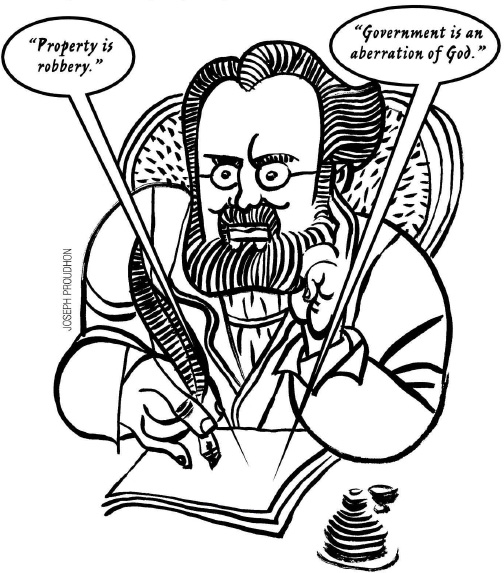
In these two famous phrases we find the summary and the seeds for the basis of anarchist actions. And its destiny. The search began with Proudhon, both to achieve the abolition of the State and to find new ways to ensure a just and free society.

